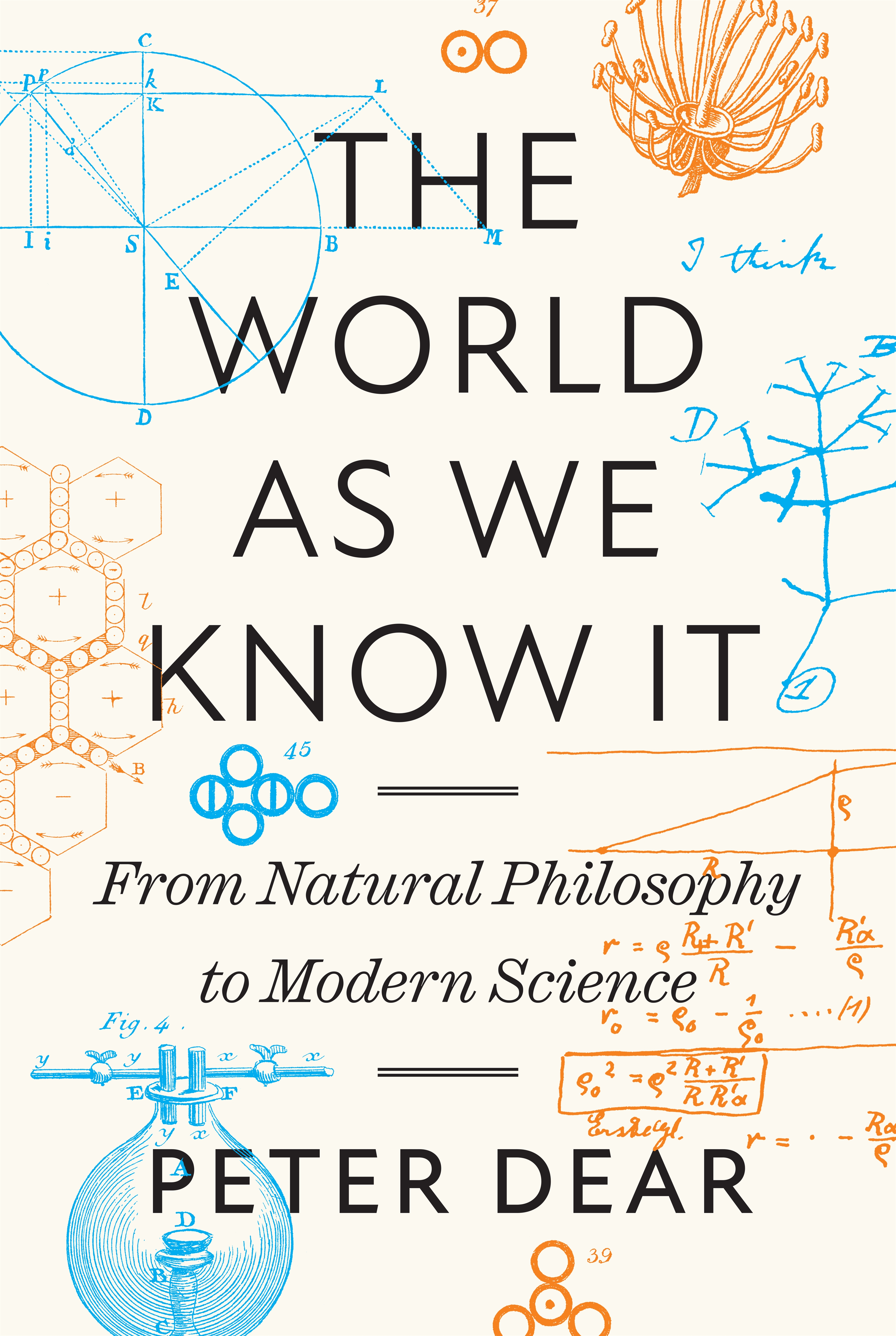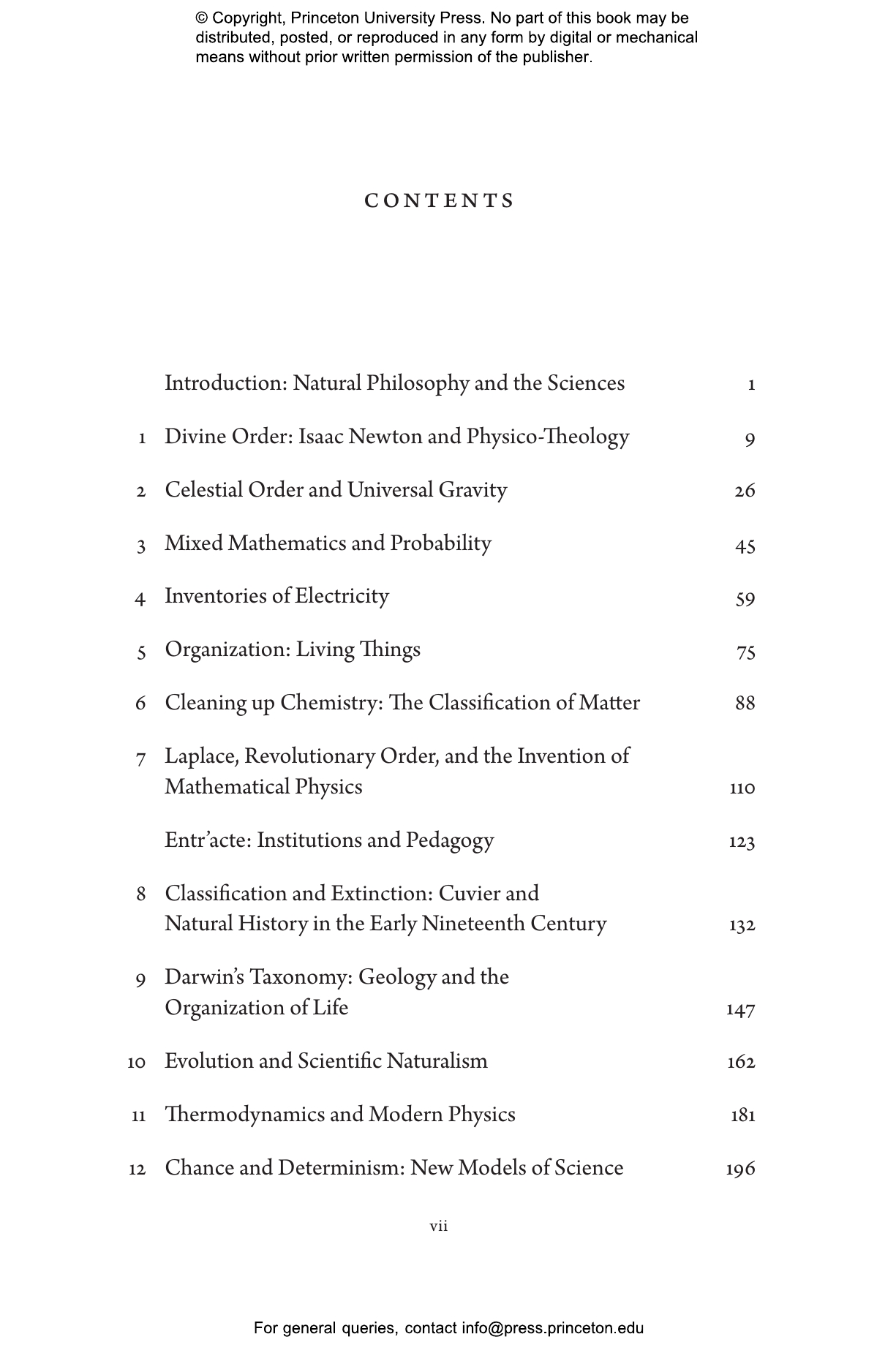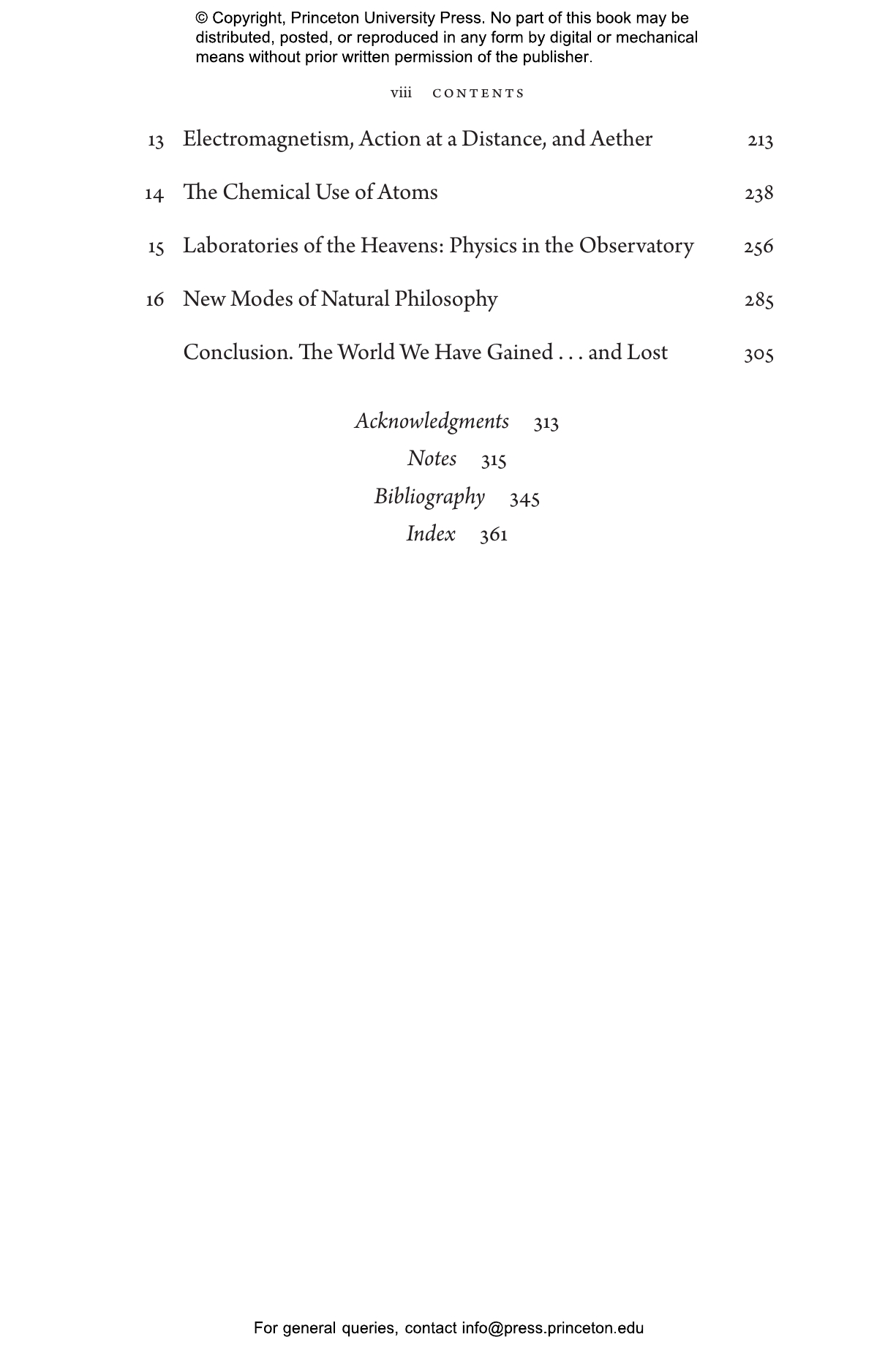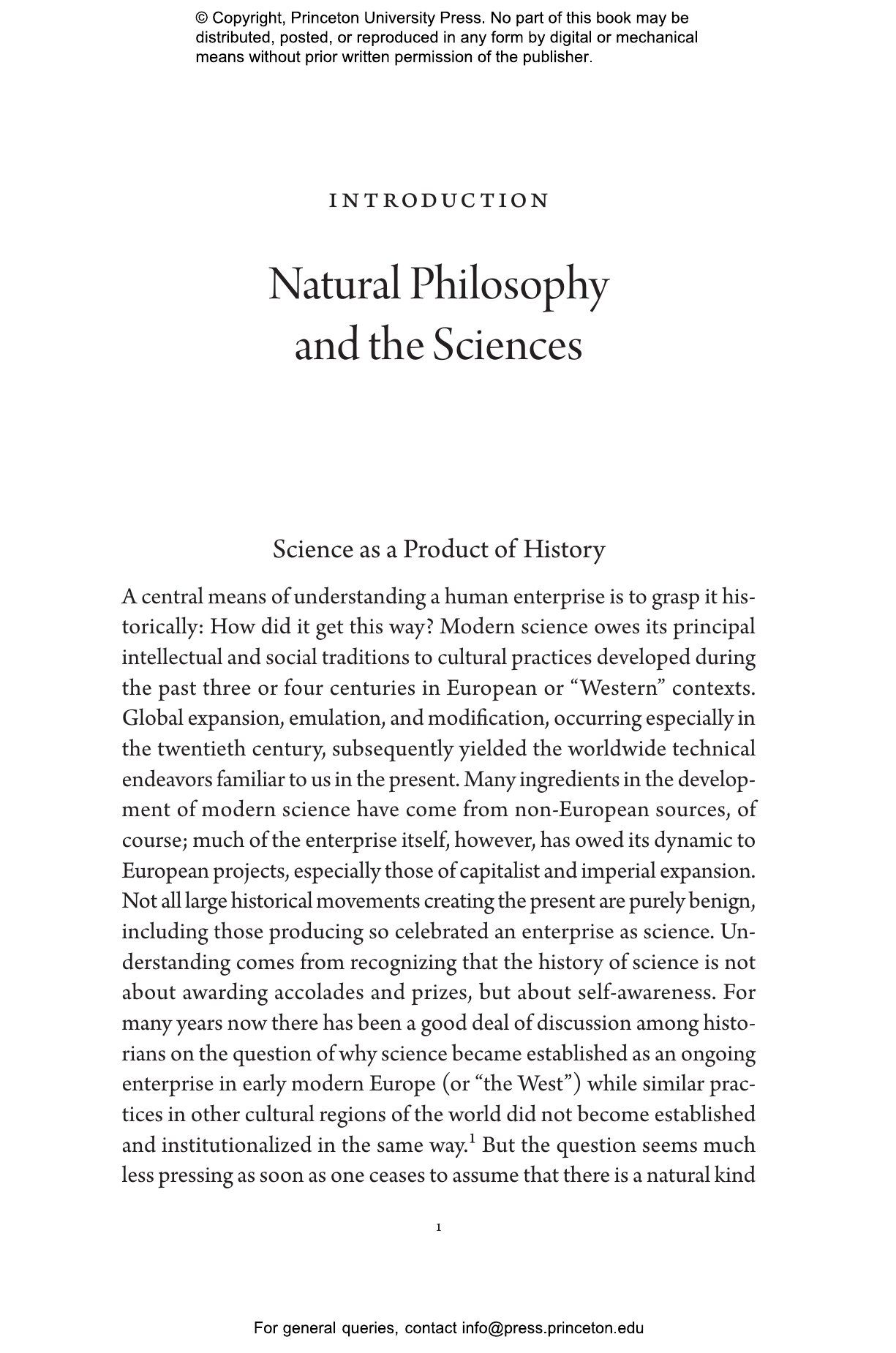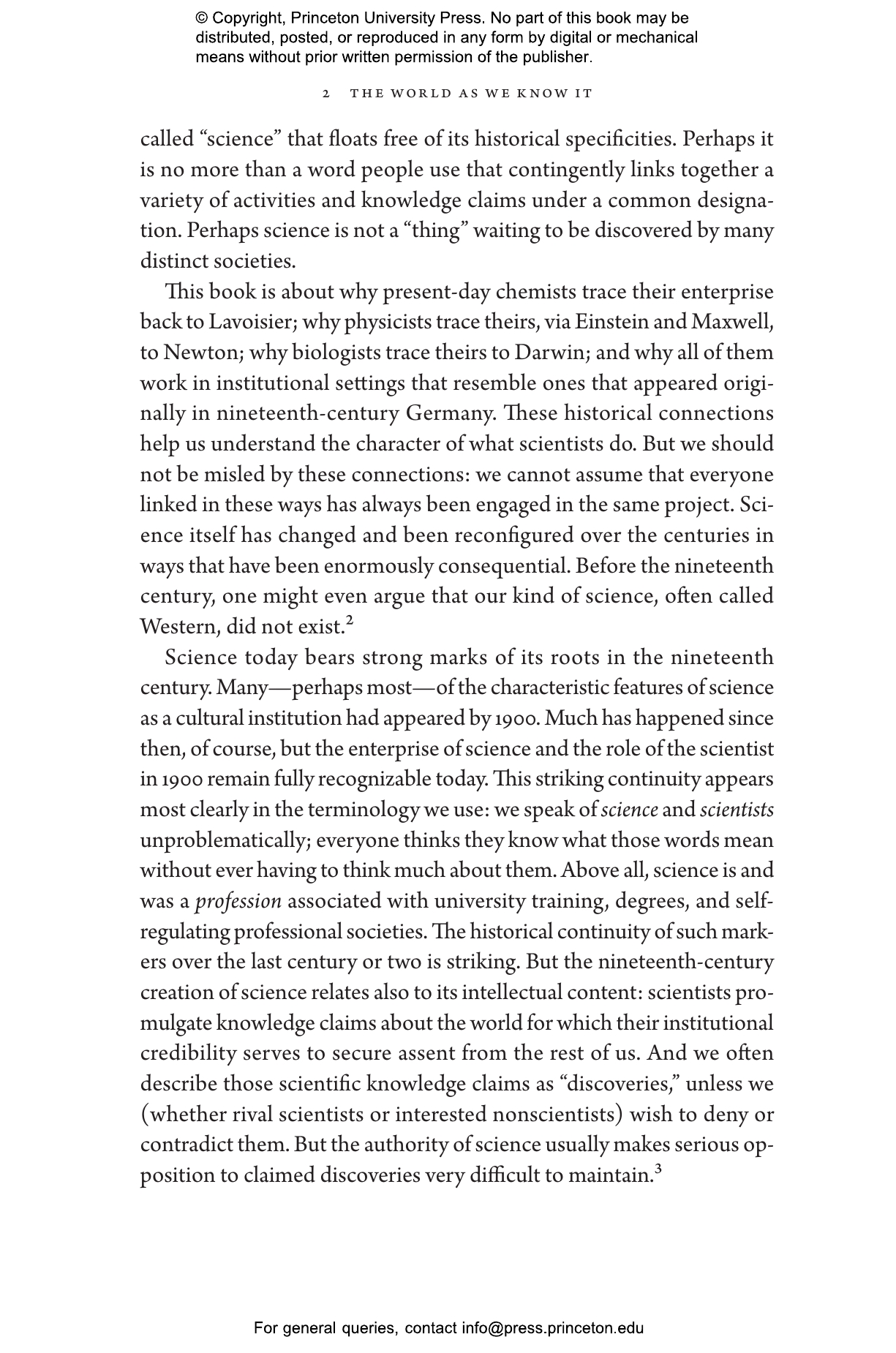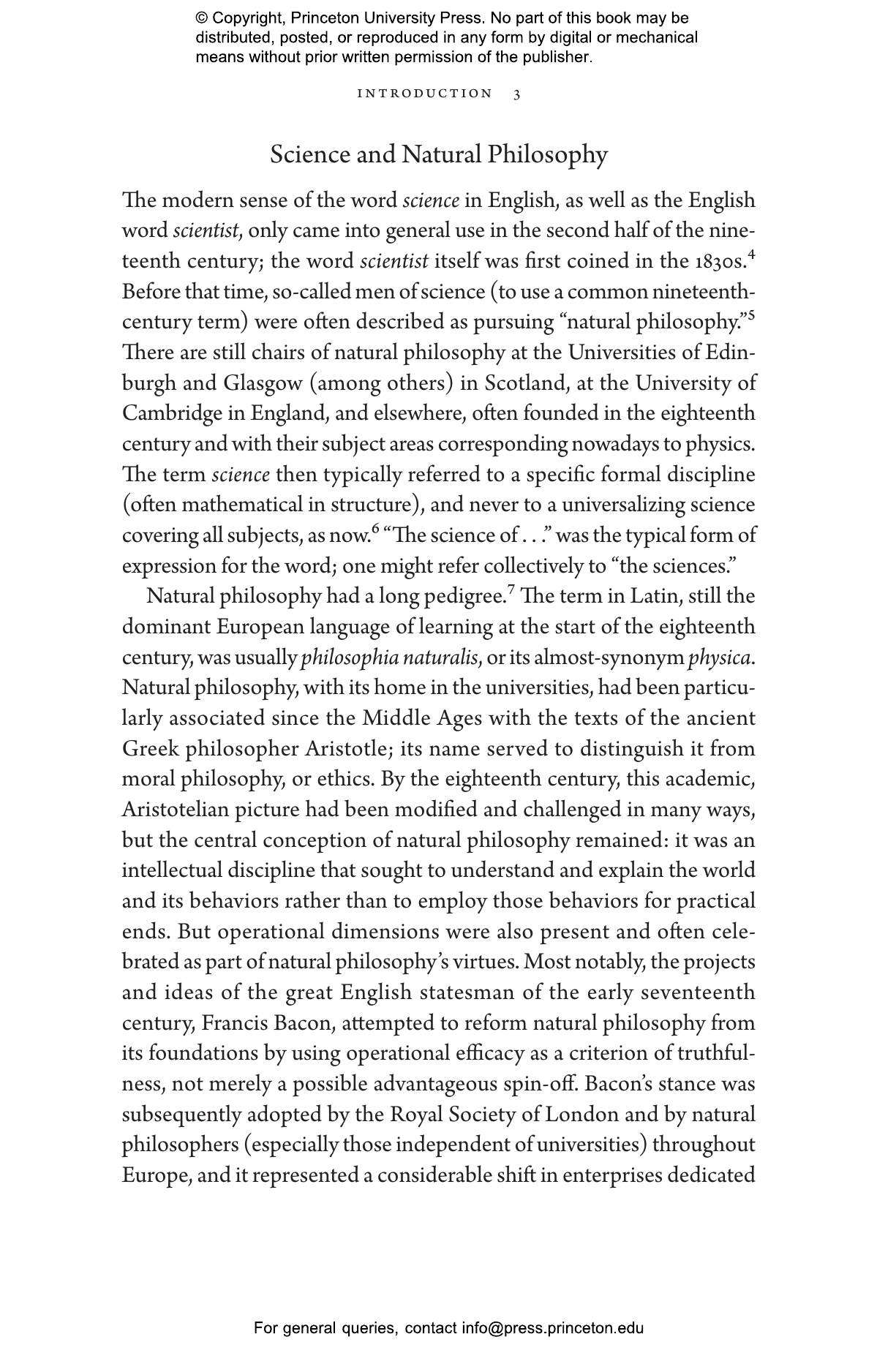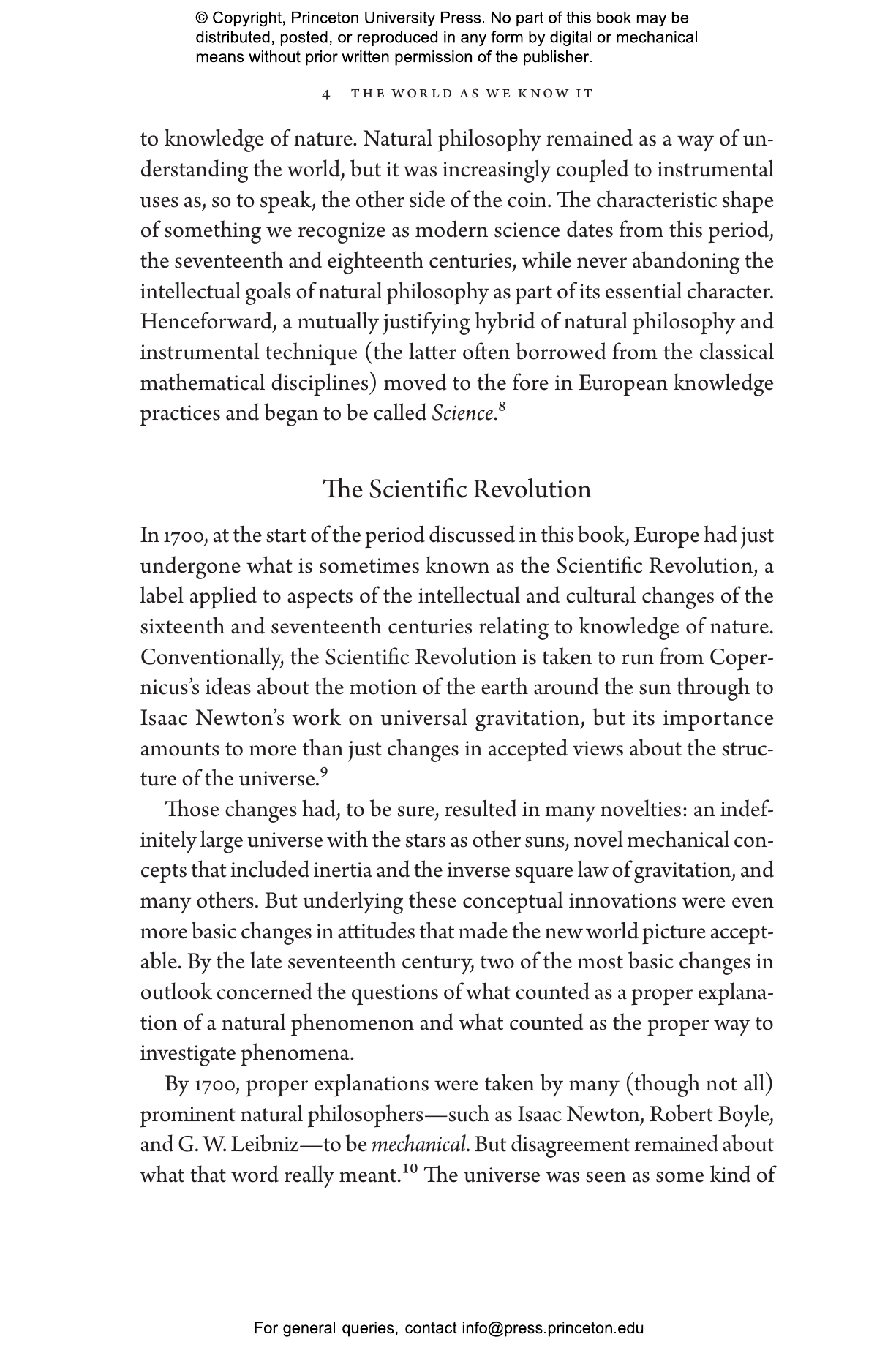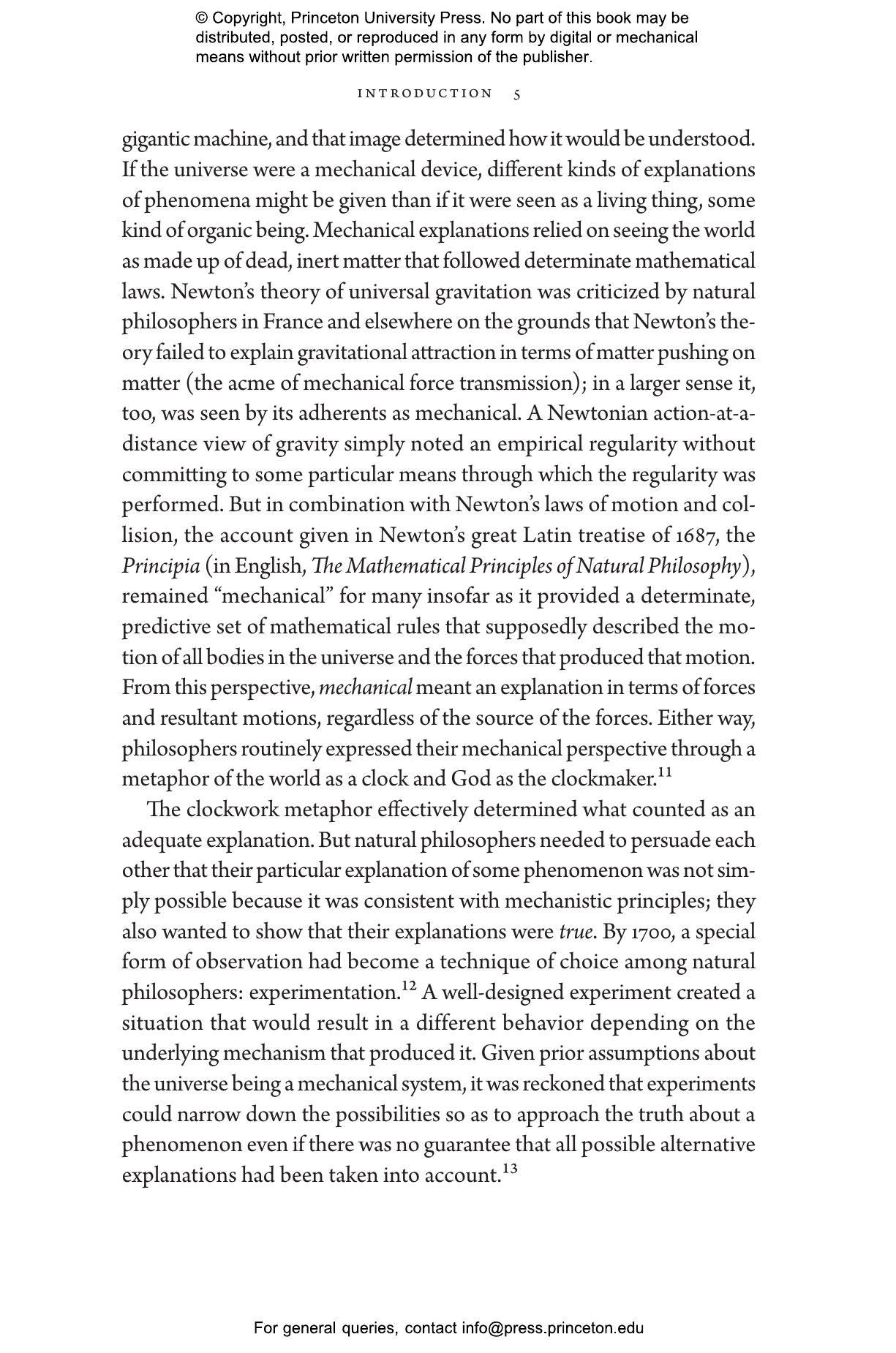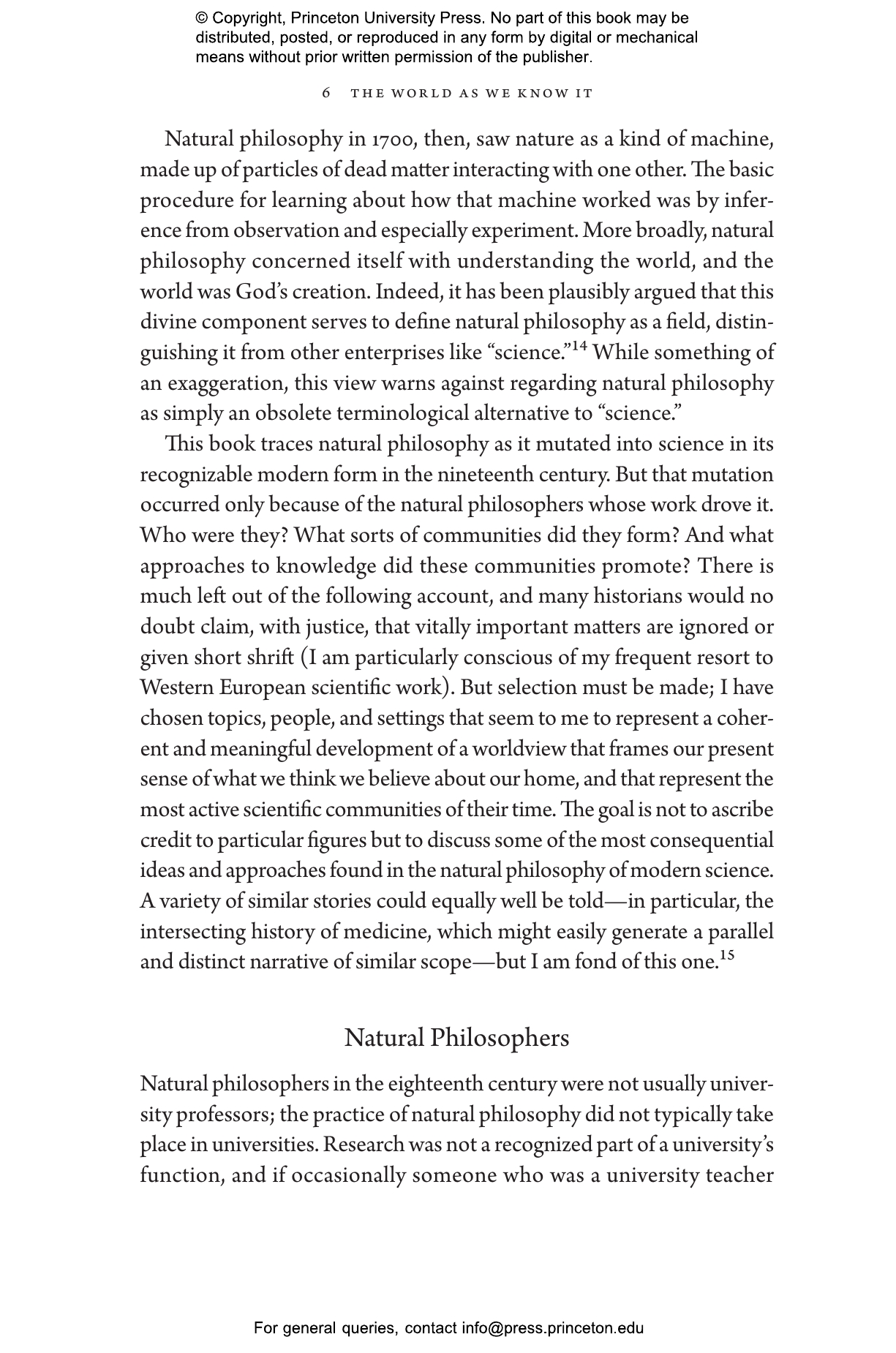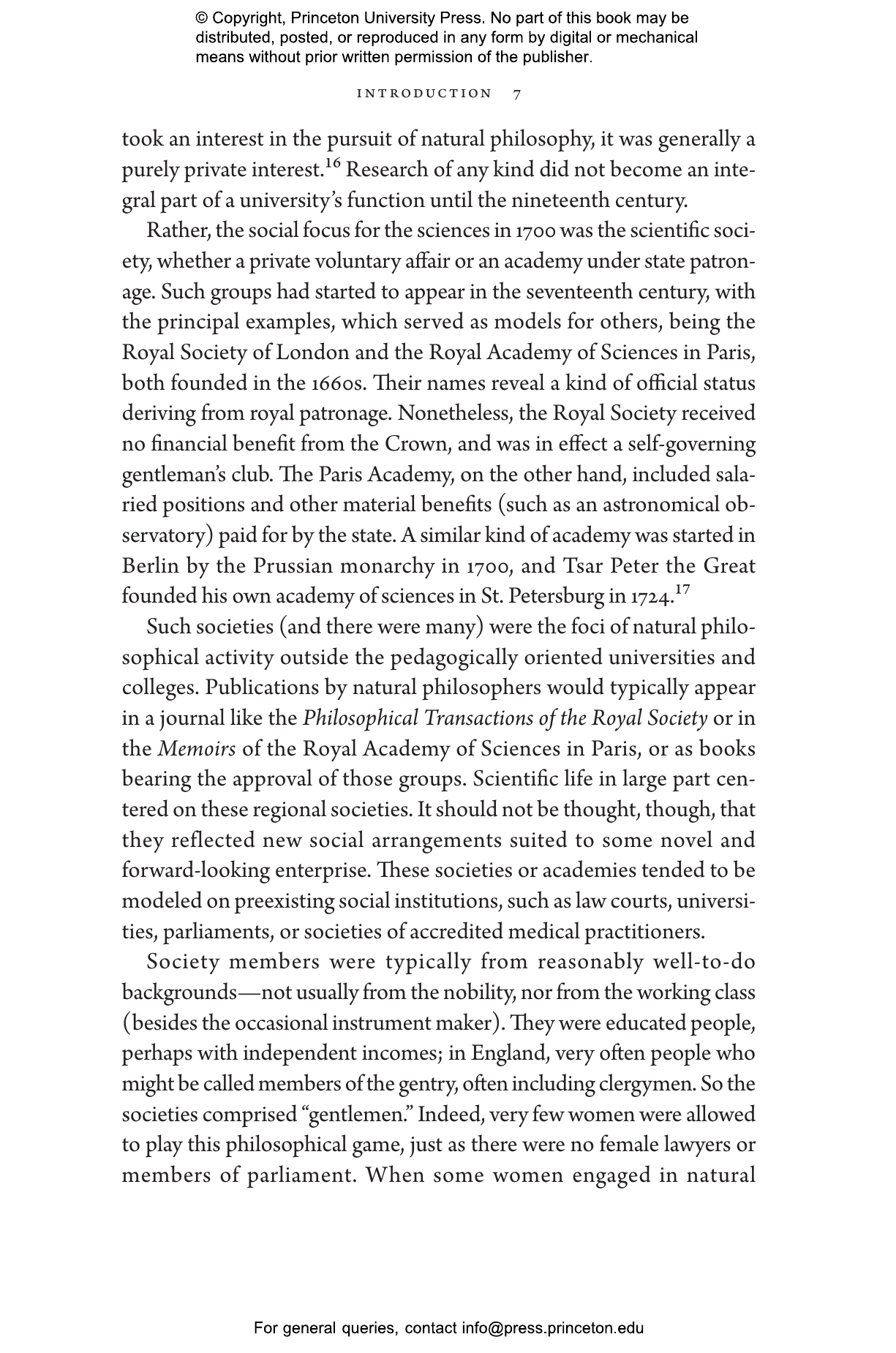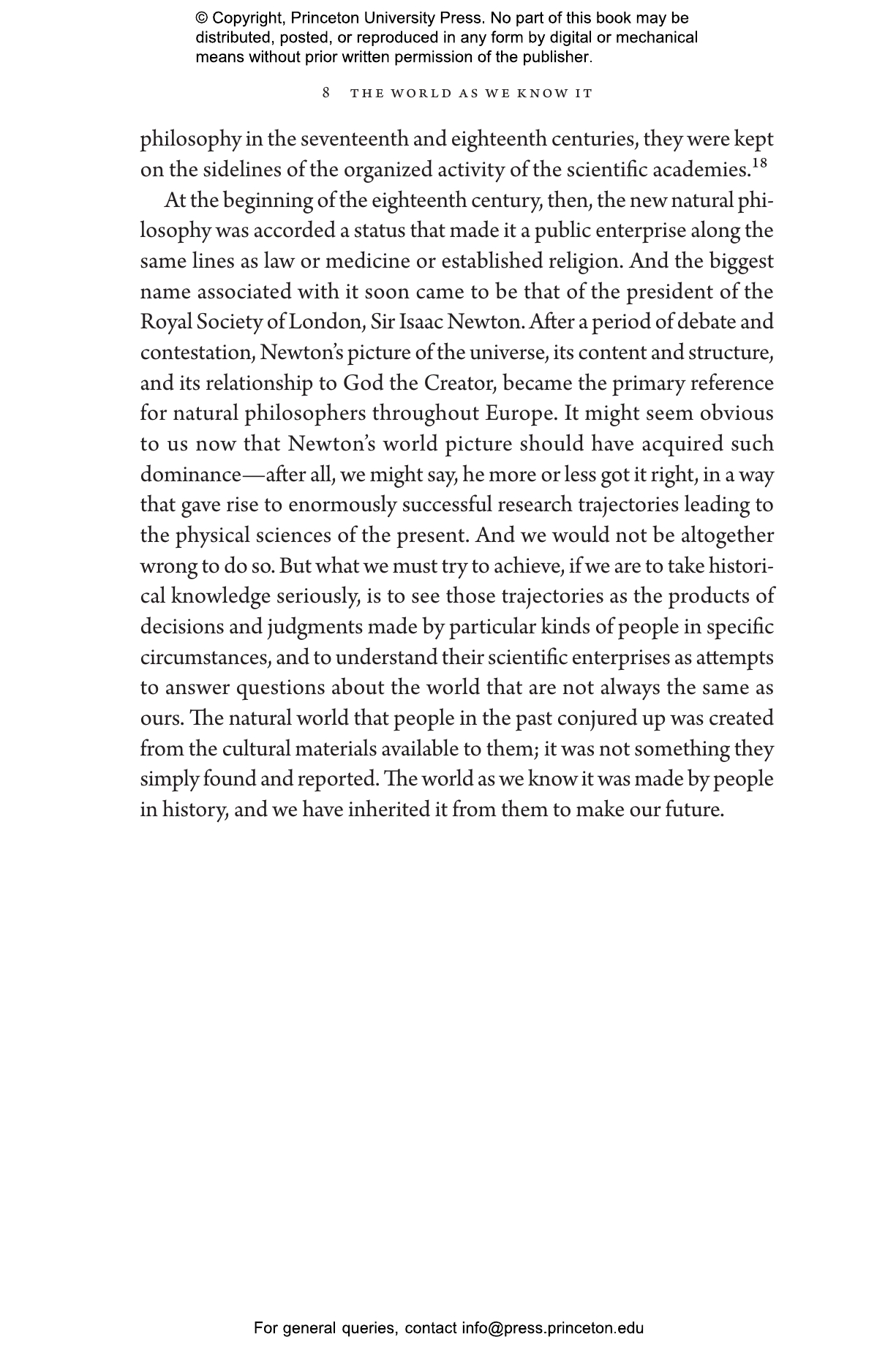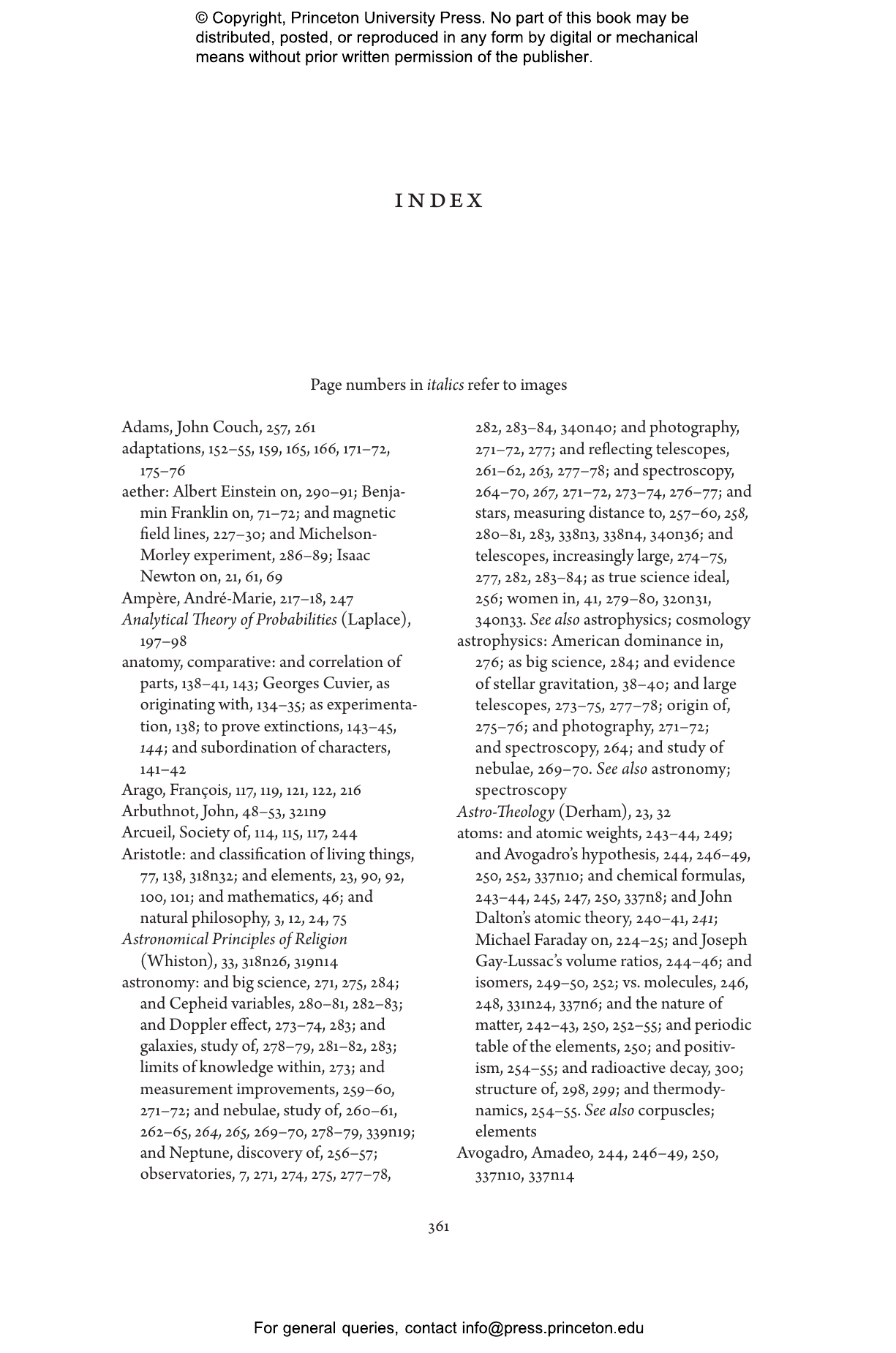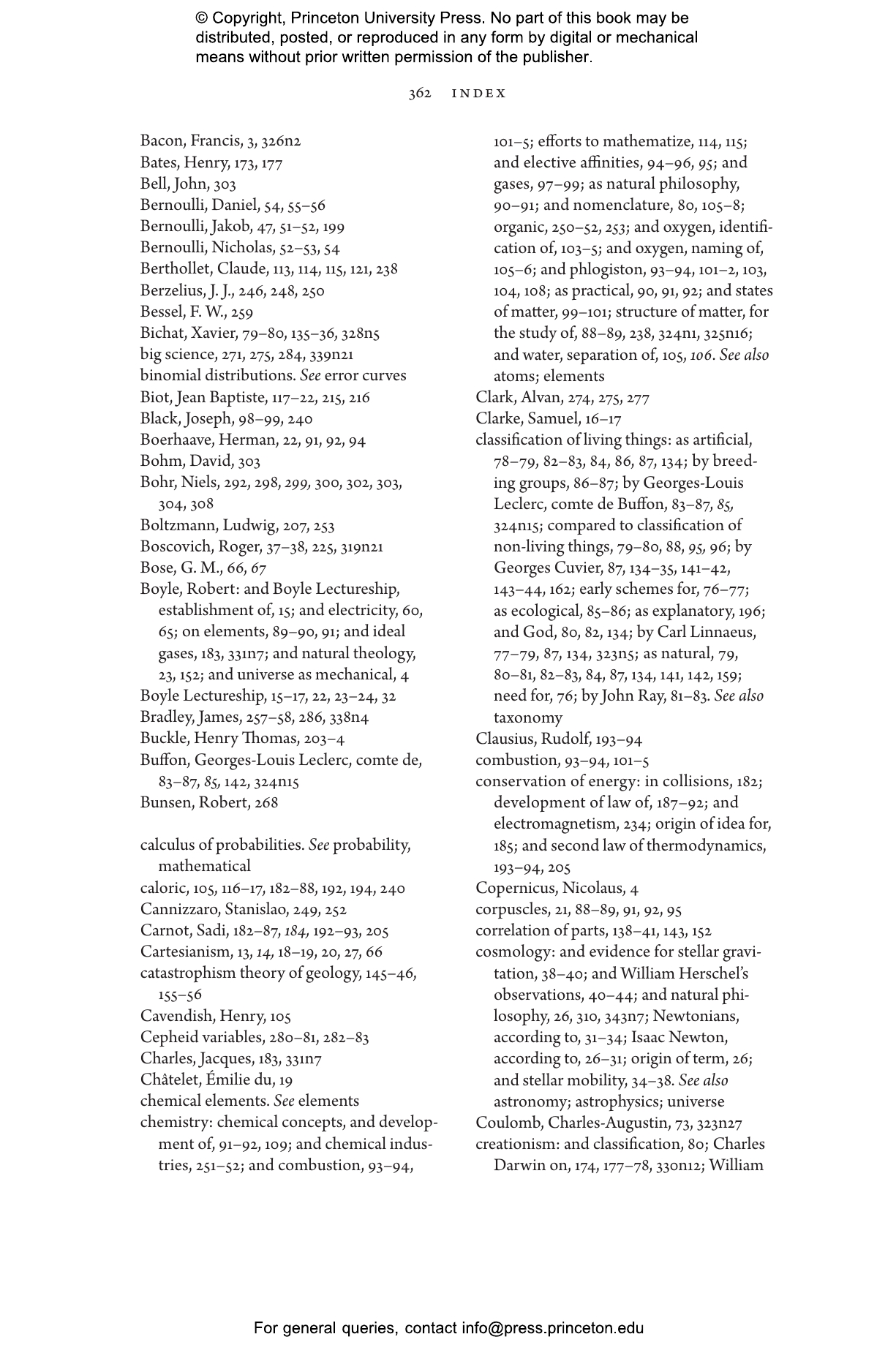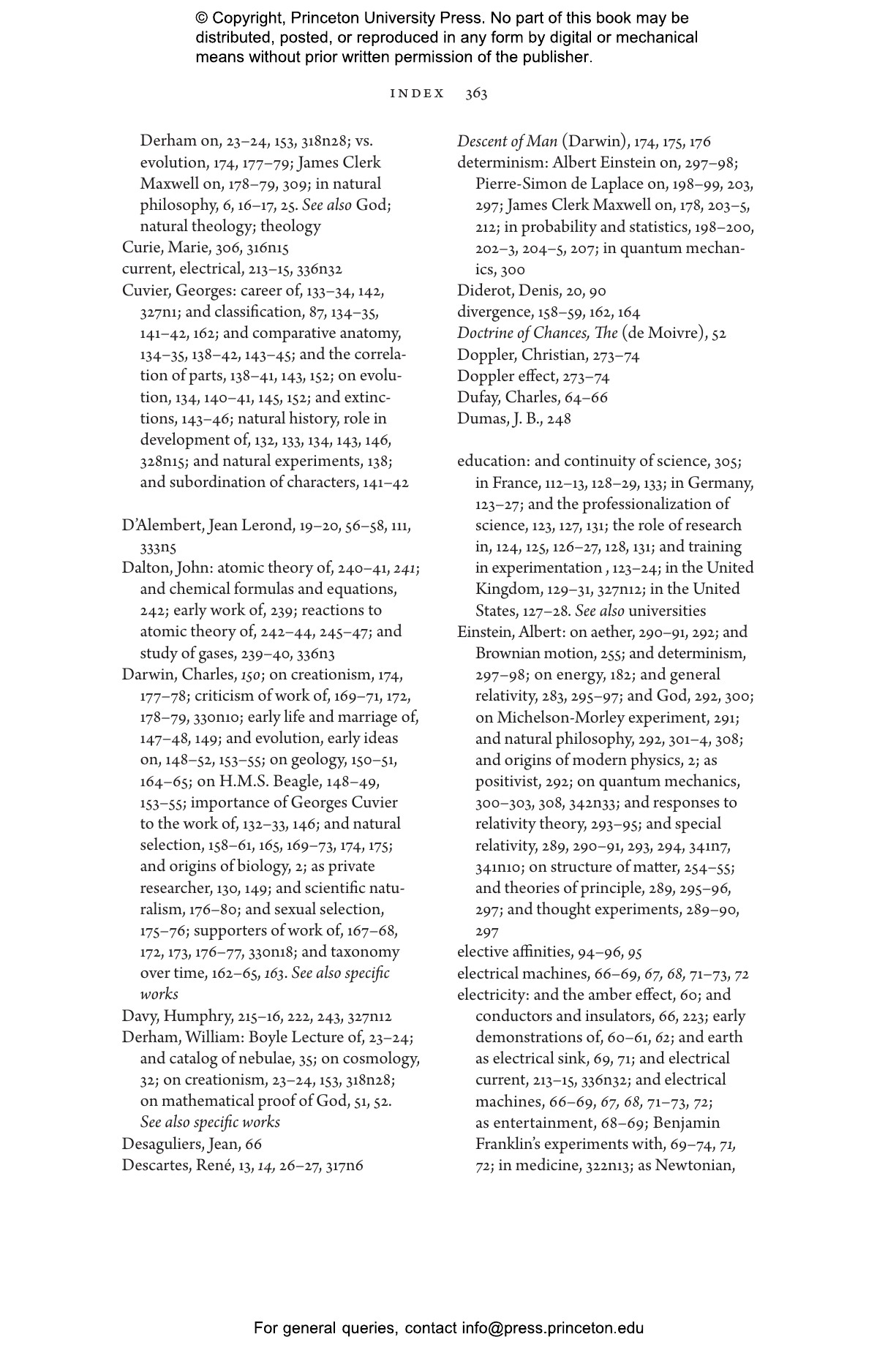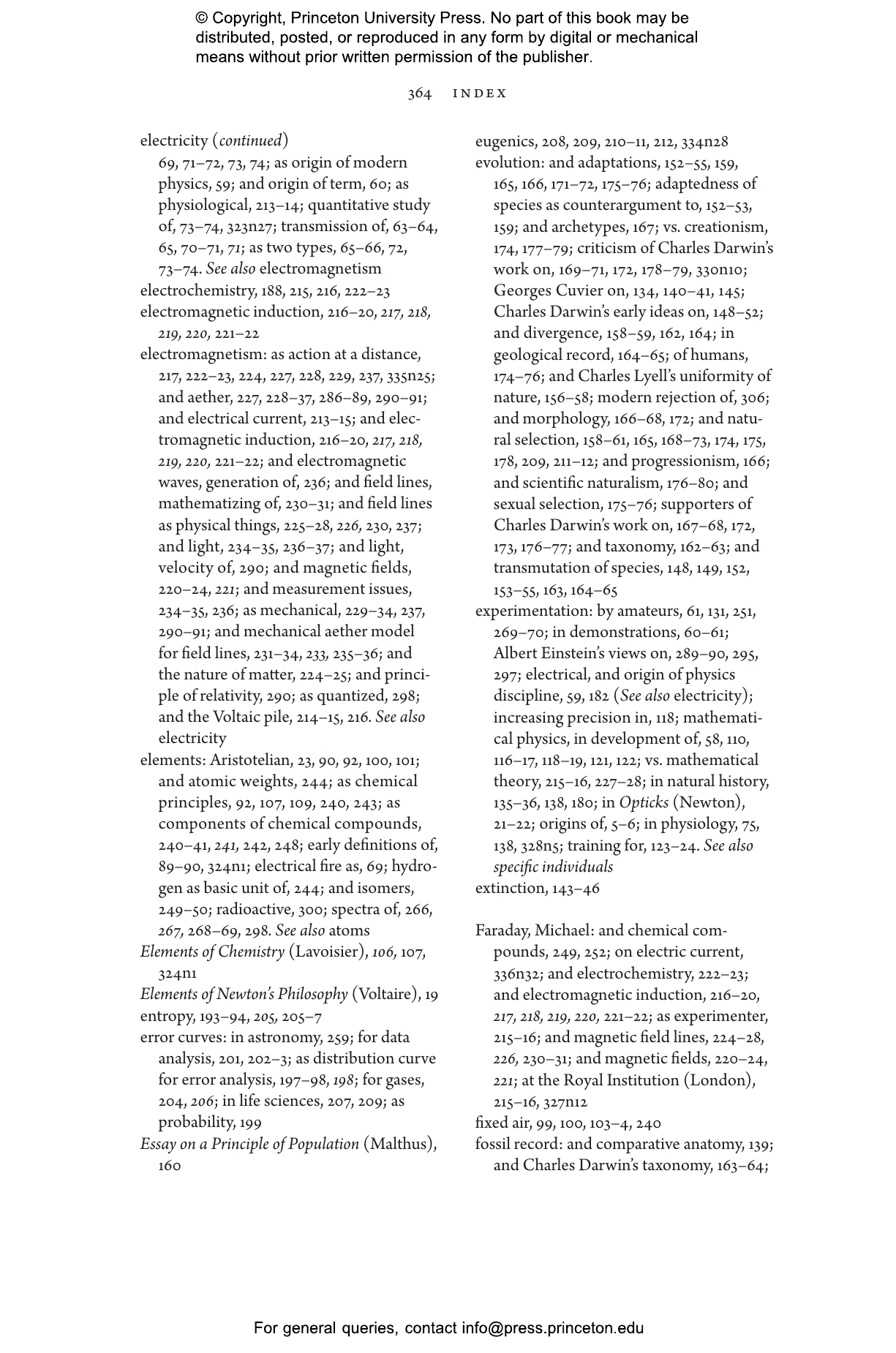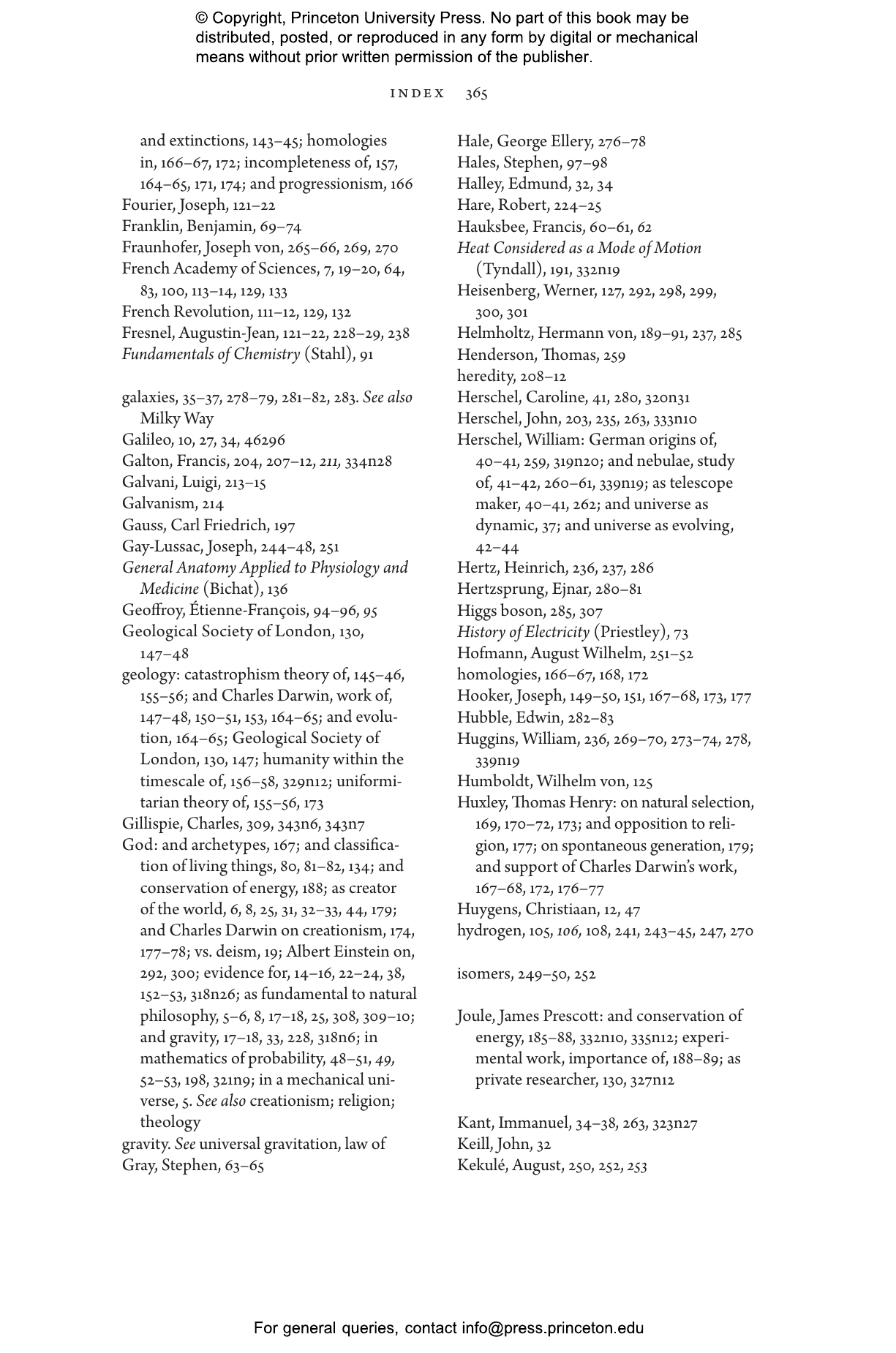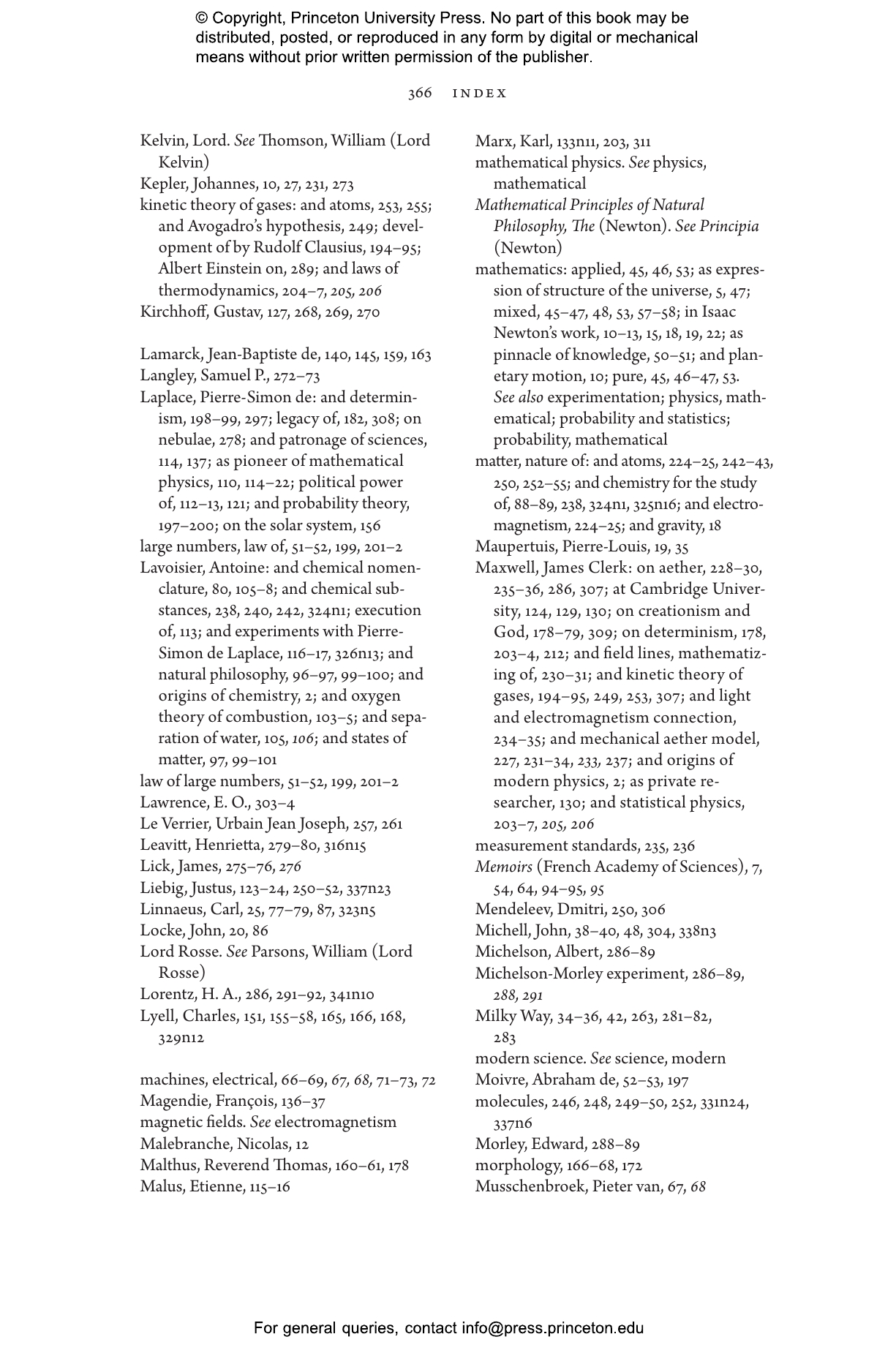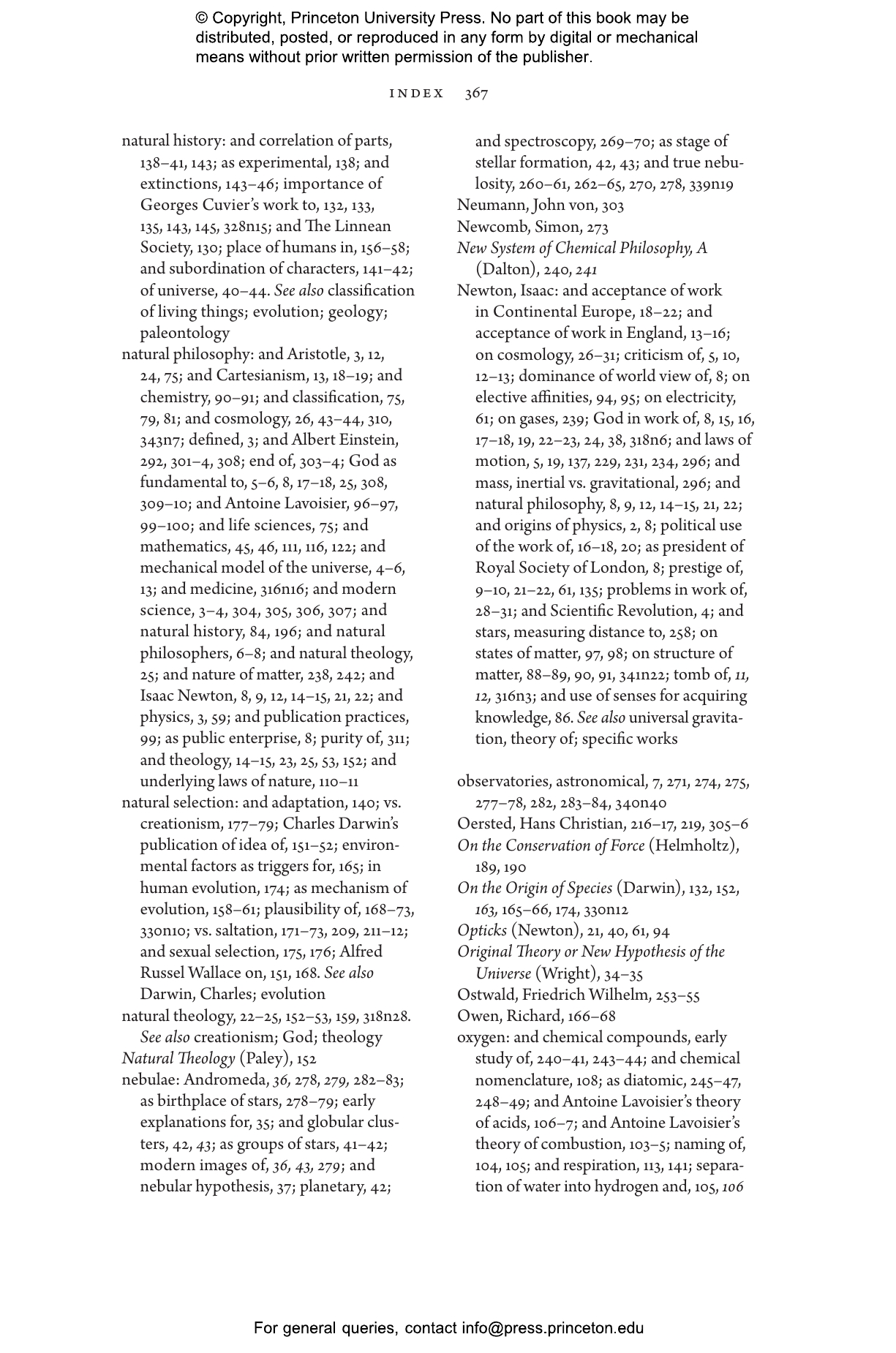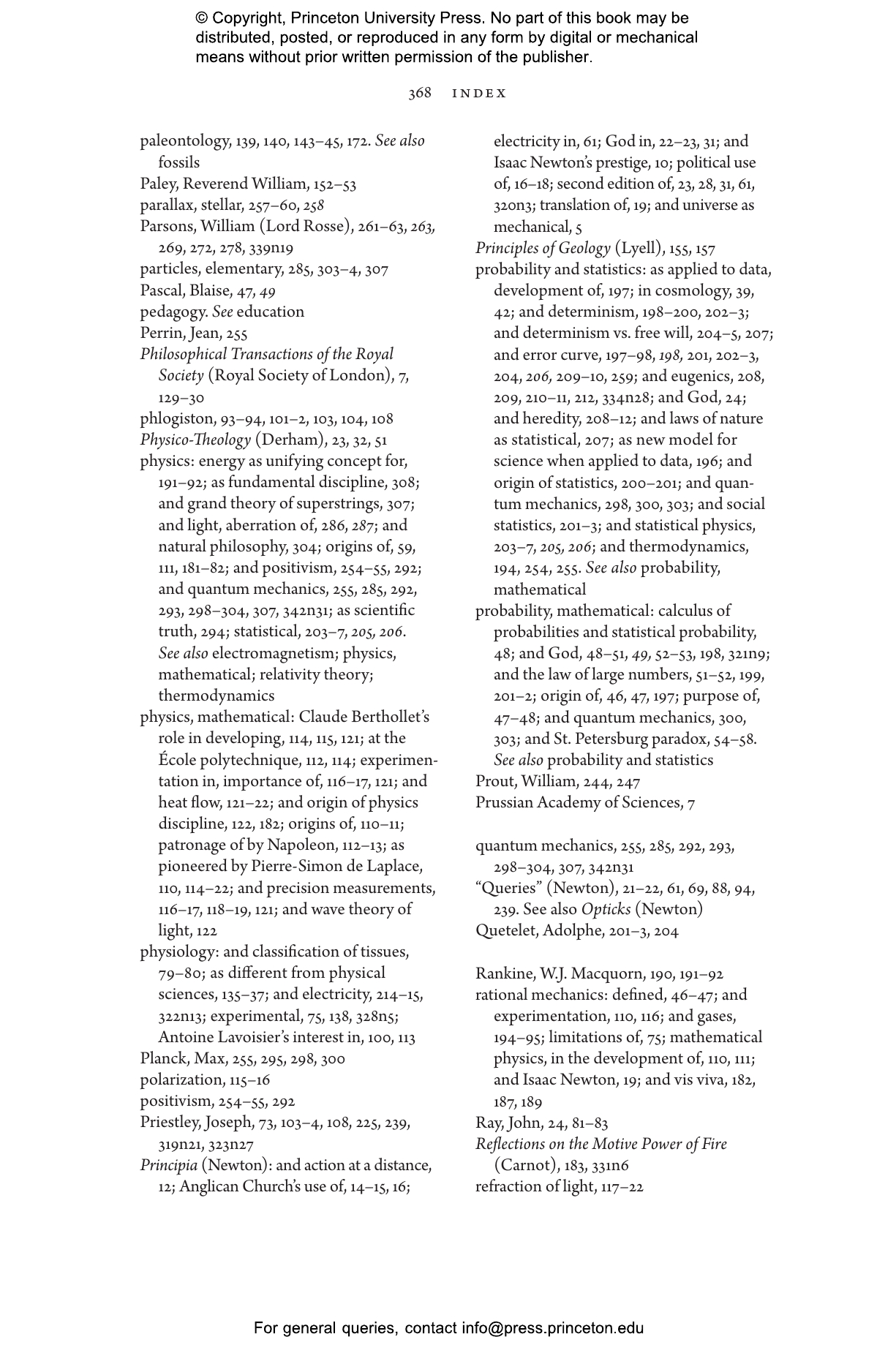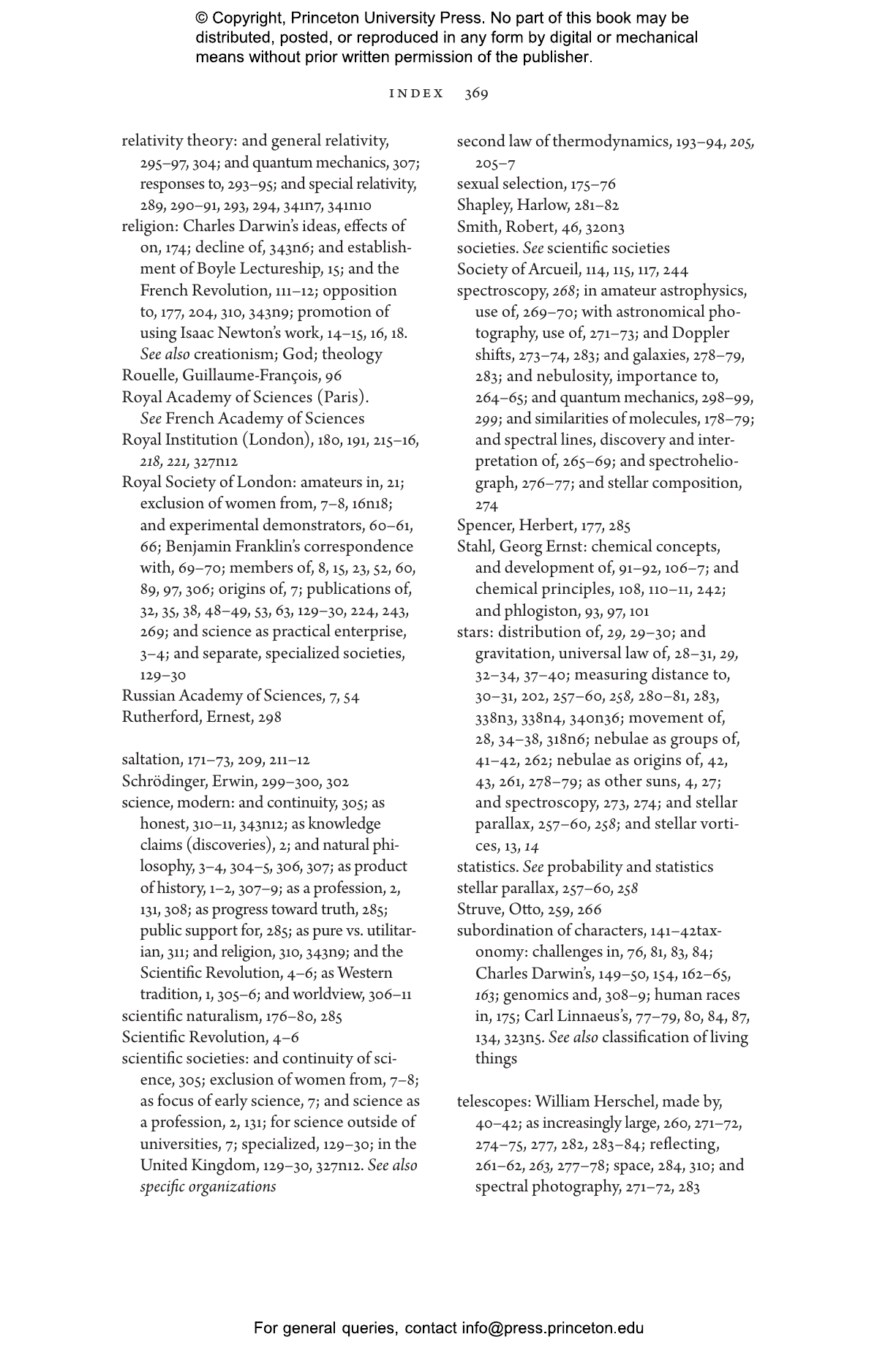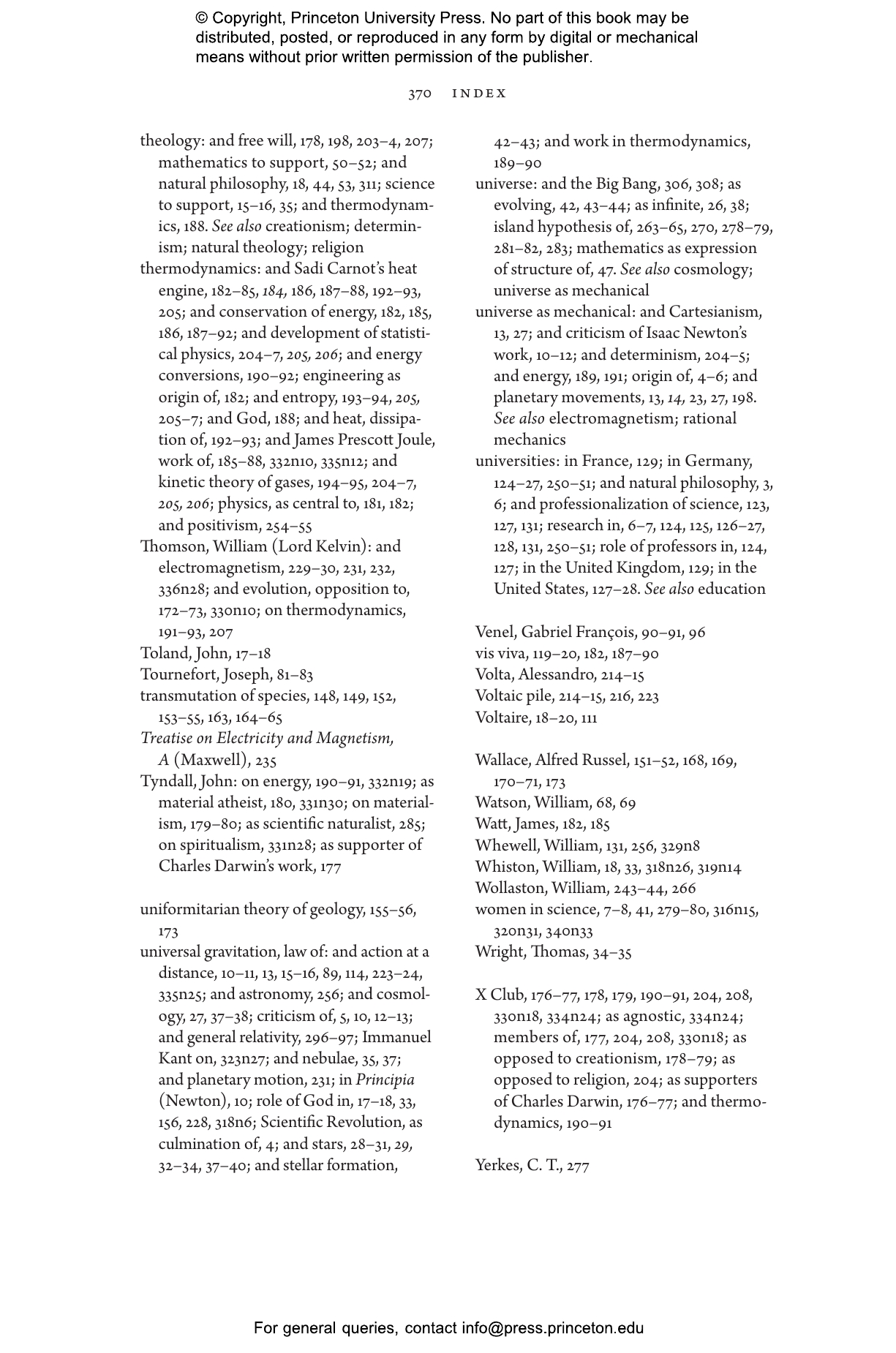Science is the basis of our assumptions about ourselves and our world, from ideas about our evolutionary past to our conceptions of the vast expanses of space and the smallest particles of matter. In this panoramic book, acclaimed historian of science Peter Dear uncovers the roots of such beliefs, revealing how they constitute a natural philosophy that has been developed and refined over the course of centuriesâand how the world as we have come to know it was by no means inevitable.
In a sweeping, multifaceted narrative, Dear describes some of the most breathtaking accomplishments in the advance of human knowledge, such as Isaac Newtonâs laws of motion and gravitation, Carl Linnaeusâs taxonomy, Antoine Lavoisierâs new chemistry, Charles Darwinâs theory of evolution, and Albert Einsteinâs theories of relativity. Challenging the notion that science is only about âmaking discoveries,â he shows how our world has been formed by people, institutions, and cultural assumptions, giving rise to disciplines ranging from biology and astrophysics to electromagnetism and the social sciences.
Taking readers from the early eighteenth century to today, The World as We Know It reveals how our ideas about our place in the universe were bequeathed to us by individuals, cultures, and a curiosity that knows no bounds.
Peter Dear is professor emeritus of history at Cornell University. His books include Revolutionizing the Sciences: European Knowledge in Transition, 1500–1700 (91ÌÒÉ«), The Intelligibility of Nature: How Science Makes Sense of the World, and Discipline and Experience: The Mathematical Way in the Scientific Revolution.
32983
“For a long time, it has seemed that academic historians of science had abandoned history. They produced jewel-like contextual studies of specific passages of scientific thought and practice, and they largely set aside the question of how we got from the past to the present, worrying about its association with simplistic triumphalism. The World as We Know It is a smart, subtle, and wholly welcome reengagement with large-scale and long-term historical change.”—Steven Shapin, coauthor of Leviathan and the Air-Pump: Hobbes, Boyle, and the Experimental Life
“In our present moment, when scientific knowledge is being swamped by misinformation and its institutions are under siege, Peter Dear’s masterful historical explanation of how the scientific ‘world as we know it’ came about—largely in eighteenth- and nineteenth-century Europe—is refreshing and welcome. While deftly integrating the essential roles of the cultural values and institutional arrangements that emerged to support science, Dear focuses primarily on intellectual history, illuminating via leading cases how ‘modern’ scientific ideas and practices developed across the natural sciences, generating both worldview implications and practical results. Capped by a brilliant conclusion addressing the legacy of this history in our contemporary mythos of science, The World as We Know It is a lucid, sophisticated introduction to the history of scientific ways of knowing and its significance for today.”—Lynn K. Nyhart, University of Wisconsin–Madison
“Peter Dear charts the rise of the mysterious entity known as ‘modern science,’ but he is far too good a historian to portray the process as uniform or linear. From Boerhaave to Bohr and from natural history to nonlocality, Dear shows how scientific practices and ideas have often appeared mutually incompatible, and how those incompatibilities stimulated yet more inquiry. Sometimes the quest was for ultimate reality, at other times for instrumental explanation or practical value—but even as science has separated itself from philosophy, it has never abandoned the fundamental ambitions whose deep historical roots Dear so elegantly explores.”—Dmitri Levitin, University of Oxford
“Peter Dear, long admired as a commanding voice in the history of early modern science, has given us a brilliant, cogent overview of the natural sciences from the seventeenth century to the quantum revolution. Easily accessible to any educated reader, Dear’s story focuses on natural philosophy and various instrumentalist or utilitarian challenges to it from Newton to Einstein and Bohr. Detailed accounts of crucial episodes convey the flavor of actual research, never losing sight of the big picture. An exciting book, indispensable to anyone interested in modern science.”—James Turner, author of Philology: The Forgotten Origins of the Modern Humanities


